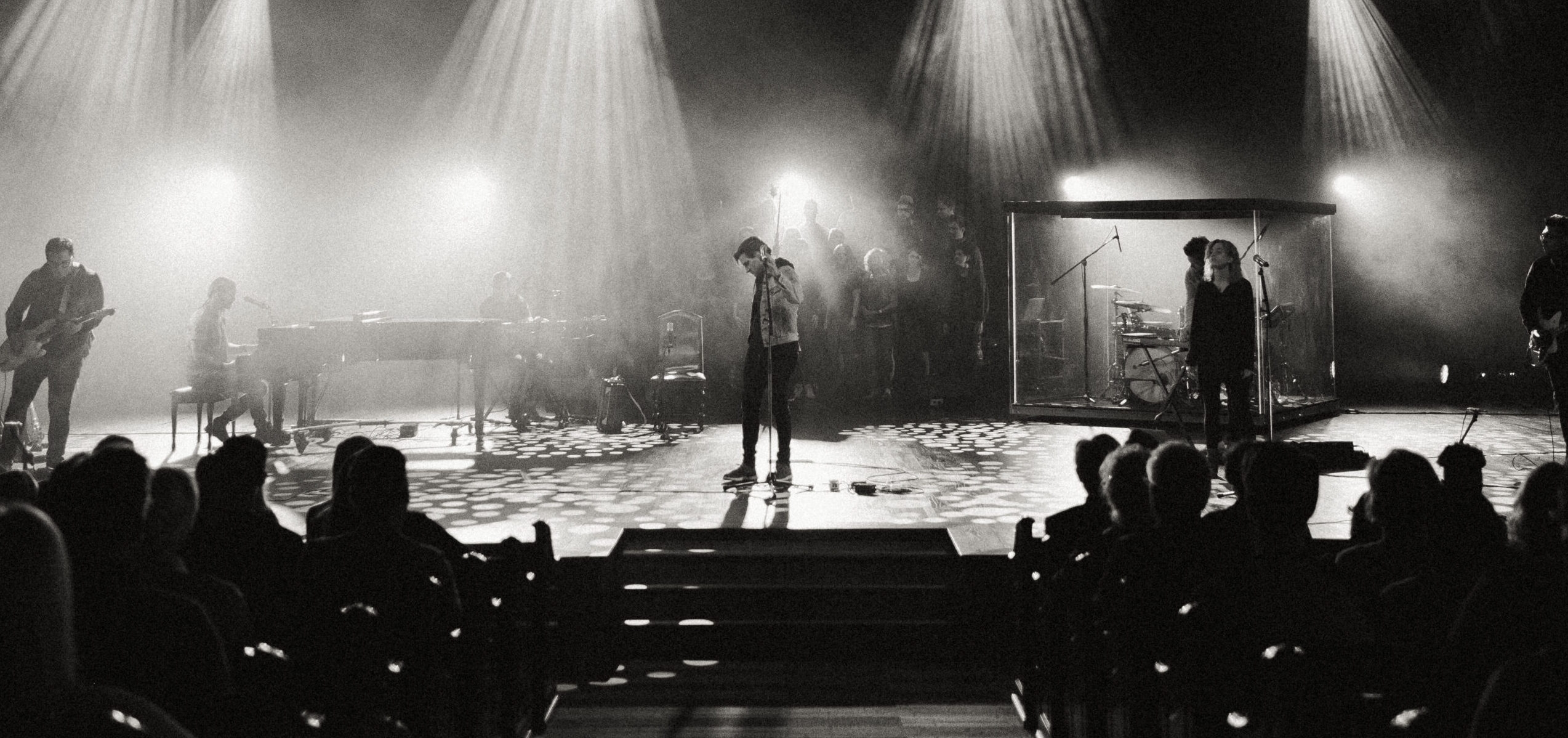
Q: Should I talk between songs?
A: Look at the Psalms. Some of them have superscriptions before verse 1. Some don’t. Some have built-in interjections like, “Selah.” I like this because, sometimes, the last thing you need to hear, as a worshiper, is someone talking. But sometimes, it’s exactly what you most need.
How do you know when’s which?
As a general rule, I try to never have to say one word to set up a song after a sermon. If a sermon is 30-40 minutes of talking, the last thing I want to do is follow that up with more talking.
On the other hand, some songs aren’t saying very much these days. So, a little teaching, exhortation, or prophetic revelation can keep something that’s not very fresh, quite fresh actually. Or sometimes you need to call people to attention so that the first song has instant traction. A call to worship can go a long way to gather the people, focus the attention, and start moving the congregation towards where the Pastor is wanting us to go. You can try skipping the call to worship, and just blast off right into verse one of your opening song, but that is quite a leap you’re asking your congregation to make. Remember, there’s a good chance they didn’t wake up 4 hours earlier, warm up their voice, run through the songs, and spend time in rich prayer before walking into the auditorium.
When I was just getting started leading worship, 20+ years ago, I had an older worship leader say to me once, “You know, Aaron, every time you start talking, you call people’s attention away from the Lord, and put it on yourself.” That may make you think that the last thing I should ever do is start talking between songs, but that’s not what I took away. I heard him saying, “If you’re going to ask for my attention for a minute, make sure it’s worth it.”
This is what I’ve tried to do ever since.
I never want to interject just to say some pointless worship-leader drivel–God knows there’s more than enough silliness being stated with breathless exuberance that means less than nothing.
But if I can add something briefly, pastorally or poetically, that might enrich the worshiper’s experience (either mentally, with some quick moment of teaching; emotionally, with some level of personal vulnerability; or spiritually with a word of knowledge or prophetic sense), I will never shy away from that opportunity.
Another thing: most of our worship sets are filled with songs we’re personally tired of. Fresh revelation can keep old songs still very meaningful. The song itself may have lost all of its initial impact on me and on the congregation, but if there’s a new level of insight or a measure of momentary significance that I can draw out, even a stale, overplayed, overly familiar song can be sung with new levels of heartfelt enthusiasm. I’ve experienced this many times as a worshiper, and tried to facilitate it as a worship pastor.
(AK)